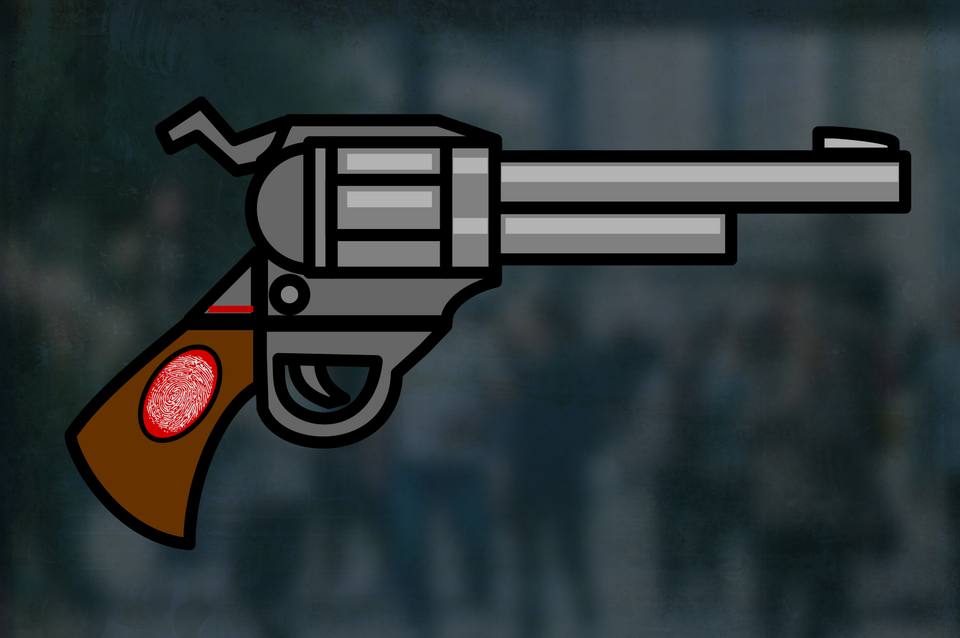Smart guns ‘one piece of a very complex problem’ (Q&A)

Can technology prevent gun-related killings? It’s a question often posed to Margot Hirsch, president of the Smart Tech Challenges Foundation, and she has a simple answer: Don’t look for one single solution to gun violence, but smart guns could make a huge dent in the grim annual statistics.
With cutting-edge safety and authentication features, smart guns and their accessories fire only for specifically approved users. Otherwise, they remain locked and secured, preventing unauthorized people from using them.
To be clear, smart guns wouldn’t prevent an event like the October 1 mass shooting of music lovers in Las Vegas. Their real promise is in essentially disarming an estimated 250,000 stolen guns every year.

Hirsch’s efforts to increase use of personalized authentication technology for weapons face strong headwinds from gun lobbyists and arms manufacturers that are reluctant to get too far ahead of their customers. But she’s optimistic that gun buyers will come to understand and respect smart guns’ safety advantages, ultimately driving the technology and its market forward.
What follows is an edited transcript of our conversation.
Q: As you look to the future, what’s a realistic assessment of what “smart” firearms technology can accomplish?
Its greatest impact will be in helping prevent unintentional shootings, as well as disrupting the market for stolen guns. It won’t make all guns safer, but it will certainly help address the 1.7 million unlocked and loaded guns that sit in homes today. They account for a lot of the tragic and accidental shootings and teen suicides, where a distraught teenager, in an impulsive moment, gets a family member gun and shoots.
What can it do to stop mass attacks?
If a potential killer steals someone’s gun, authentication technologies could prevent the weapon from being used. But smart guns would not have prevented something like the mass shooting in Las Vegas—the shooter apparently obtained his guns legally.
Smart guns represent one piece of a very complex problem.
In this horrific moment, we are all looking for a solution to stop these tragedies from happening. We have to keep in mind that there is no one solution to gun violence. There are a lot of different things that can happen to reduce the number of these types of tragedies, and smart guns represent one piece of a very complex problem.
To foster greater acceptance of the technology, do you first need to get buy-in from gun lobbyists and manufacturers?
I don’t think that we can wait for that. Technology is a very rational and plausible solution to help make guns safer, and we have to keep trying. Look at the automotive industry, where Elon Musk disrupted the market. Today, many people have electric vehicles, and nobody thinks that’s strange anymore. There has to be a similar market disruption to make that happen with smart-gun technology. We can’t wait for legislation.
What are the most promising tech developments happening in smart-firearm safety?
There are two predominant technologies: RFID (radio frequency identification) and biometrics. Everybody is quite familiar with RFID; it’s the token your car key fob uses. So you if wear an RFID ring or bracelet or watch, and you bring it in close proximity to the trigger, the gun can fire. The technology’s advantage is that it’s impermeable to water or dirt.
And then there are biometrics. Right now, the technology is used with fingerprint readers, which are getting better and better. The analogy here is with the cell phone, where new technologies are always evolving. It’s not far-fetched to think that at some point, manufacturers will use a different biometric, such as iris or facial recognition, to authenticate gun users. Innovators are testing advanced versions of these technologies so they will work as reliably as any traditional gun sold today.
So if the technology continues to improve, what would present the biggest obstacle to mass adoption? The gun lobby?
The National Rifle Association position is that it is not opposed to smart guns. It is opposed to anything that mandates their use. And we are not in favor of mandating, either. It should be a market solution and, ultimately, gun consumers should decide whether this is the type of firearm they would like to own.
We are seeing automotive fatalities drop significantly, as technology gets applied to that area. We haven’t done that with firearms. Why not?
Because of the boycott in the late 1990s against Smith and Wesson and Colt, gun manufacturers are reticent to launch these new technologies and make them available to gun owners. I would argue that there is a very significant business opportunity here, should a gun company decide to enter the market, because it would attract new gun buyers.
So can you explain what the politics are around this?
Smith and Wesson almost went out of business. If you were a gun manufacturer, you probably would not want to jump right back in—especially when you don’t have the full support of the NRA.
I imagine that if the NRA came out and said, “We really believe in these technologies; they provide our gun owners with a great alternative to a traditional firearm,” then I think the gun manufacturers would embrace the opportunity, and it would also be good for their business.
You don’t sound optimistic.
I would love for it to happen, but who knows? I don’t have a crystal ball, but I think it would be a win for all Americans because using technology to make firearms safer would be a move in the right direction. We use smart technologies in almost every other aspect of our lives. But we have not applied it to firearms. We have done so many things to make the whole driving experience safer, and we are seeing automotive fatalities drop significantly, as technology gets applied to that area. We haven’t done that with firearms. Why not?
Jimmy Kimmel made a very good point recently. Building codes can make buildings safer, and we update them as our knowledge and technologies evolve. Why don’t we do that with firearms?
So five years from now, do you expect marked improvement, with a significant uptake?
Yes. It is very realistic that in a five-year window, plus or minus, we will see personalized guns. The time has come, demand is increasing and, sadly, events like Las Vegas will make people demand safer solutions. Personalized gun safety technologies can play a critical role in reducing overall firearm-related deaths and killings. This is not a pie in the sky.
When I first started doing this, I thought it was a matter of if, not when. Now, I truly believe that it is a matter of time.
